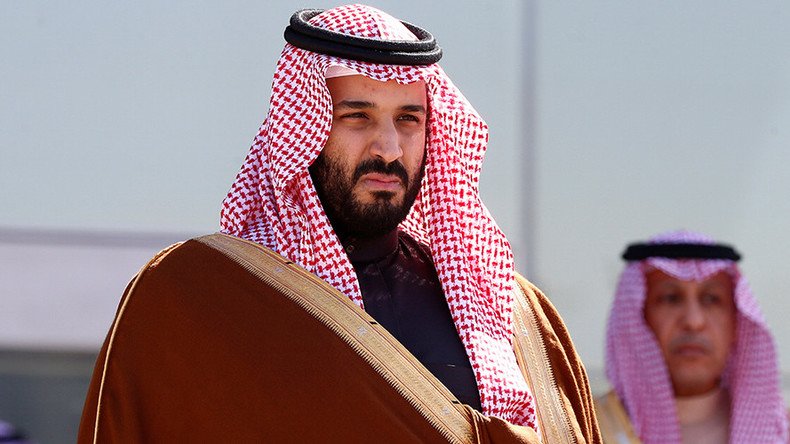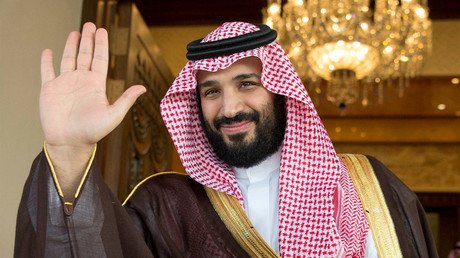Saudi reshuffle could completely shake up oil markets

The power restructuring in Saudi Arabia this week led to the elevation of 31-year-old Mohammed bin Salman to crown prince, essentially ensuring that he will become the youngest king of Saudi Arabia in the not-too-distant future.
The heir apparent has already been effectively running the country for the past few years, so the move was not entirely a shock. Nevertheless, the effects on the oil market could be profound.
The new crown prince is known to be a bit unpredictable. In the early phase of the oil price meltdown, he said that prices did not matter. But the plunge below $30 per barrel in early 2016 seemed to have changed the calculus. Last year Saudi Arabia became the principle driver behind a return to “market management,” that is restraining output to stabilize prices.
With the OPEC production cuts – which have had to be extended from six to 15 months – still proving to be insufficient at balancing the market, it is not entirely impossible that the crown prince might reverse course yet again at some point and return to a “market share” strategy. Or he could decide to deepen the cuts, an idea floated a few days ago by the Iranian oil minister. For now though, higher prices are surely to be the goal, particularly with the IPO of Saudi Aramco not far off. Either way, after Mohammed bin Salman and King Salman ousted former oil minister Ali al-Naimi last year, they have tighter control over the kingdom’s oil policy.
The IPO is another signature initiative of the young prince. He hopes to sell off 5 percent of Aramco, which he argues could raise around $100 billion (some analysts dispute that figure) in order to finance his Vision 2030, which calls for a diversification of the Saudi economy. The elevation of Mohammed bin Salman is being interpreted in some corners as an effort to accelerate this economic transformation. With low oil prices, a sizable budget deficit, large but dwindling cash reserves, and a restive and young population, time is of the essence.
Saudis to raise $10 billion ahead of #Aramco IPO https://t.co/i6oAGz2L8i
— RT (@RT_com) February 8, 2017
Meanwhile, the crown prince is also known to be aggressive and bellicose when it comes to Saudi Arabia’s position in the Middle East. As such, his promotion brings ominous possibilities in regards to the simmering conflict between Saudi Arabia and several of its regional rivals. Bin Salman is behind Saudi Arabia’s disastrous and bloody conflict in Yemen, which has been very costly and brought no discernable strategic benefit to the kingdom.
He is also known to be extremely hawkish towards Iran. This is an issue that would certainly push up oil prices if it got out of hand. “[It] is not really a question of if but rather of when a new escalation with Iran starts,” Olivier Jakob, managing director of consultant Petromatrix GmbH, told Bloomberg.
“Under his watch, Saudi Arabia has developed aggressive foreign policies and he has not been shy about making strong statements against Iran.” Iranian state news called the elevation of Mohammed bin Salman a “soft coup.”
There is no way to predict how a confrontation between the two countries would play out, but any prospect of oil supply disruption would ripple through the oil market even as it currently remains oversupplied.
Saudi Arabia & allies demand Qatar close Turkish base, shut Al-Jazeera & more within 10 days https://t.co/0ZArFBljoQpic.twitter.com/EVslI0pxCt
— RT (@RT_com) June 23, 2017
Most recently, according to the WSJ, Mohammed bin Salman has pushed for the sudden blockade of Qatar. The former Crown Prince Mohammed bin Nayef wanted to resolve the dispute through diplomacy, and the different stances between the two are said to have been the catalyst for latter’s ouster. The country needed unity and stability behind one policy, analysts say, which, in this case, was a more hardline approach to Qatar. Bin Salman won the argument, and was elevated to become crown prince.
The royal succession reshuffling is viewed as “a much more assertive, insistent domineering”approach to its neighbors, Chas Freeman, former U.S. ambassador to Saudi Arabia under President George H.W. Bush, told the WSJ. “Some of the neighbors regard it as a drive for Saudi hegemony in the region,” he said.
Saudi Arabia unveils plan to wean economy off oil https://t.co/CKgx3IflT3pic.twitter.com/TqatKEk1H2
— RT (@RT_com) April 26, 2016
But absent a more overt conflict involving some sort of military engagement, the repercussions of the new line of succession will hinge much more on the country’s oil policy. On that front, most analyst expect Saudi Arabia to stick to, or even deepen, the OPEC production cuts, despite the sacrifice it would entail.
The IPO of Aramco is too important to the country, an offering that really needs higher oil prices. So, at least for the short-term, it is probably business-as-usual in Riyadh.
This article was originally published on Oilprice.com













